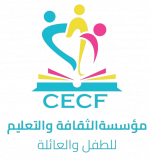AwN Impact
Evaluating the impact of Ana wa Nahnoo program on its graduates
ABSTRACT
The recent social, economic, political and cultural developments have led to a change in the value and moral system in Egyptian society. The program of Ana we Nahnoo (AwN) aims to educate young people and developing their life skills regarding self-understanding, developing relationships with others, adapting to society, and preparing participants for the labor market by supporting readiness for social development and economic growth. The main philosophy of the program looks for ways to transfer of learning skills to other areas of life as well as maintain the impact of learning. The main purpose of this study is to assess the impact of the program over a period of time from its implementation on the development of graduates’ self-management and others-dealing skills, and their readiness for social and economic growth. We analyzed the content of the four parts of the program, to identify the basic and implicit concepts and skills, assessed the level of basic skills targeted by the program among graduates, through a specially prepared online survey, conducted interviews to measure the level of readiness for social development and economic growth, and analyzed the components of the program in order to determine future development trends based on appreciative inquiry. The results showed the effectiveness of the program in developing the targeted skills, the survival of the impact of skills which learned, a high level of readiness for the graduates’ social development and economic growth. The strengths, weaknesses, opportunities, threats, and future needs of graduates were identified to develop the program in light of them.
Keywords
Readiness for social development; Readiness for economic growth; culture programs, youth programs; Culture and Education for the Child and Family Foundation (CECF).
Abbreviations
CECF, Culture and Education for the Child and Family Foundation; AwN, the program of Ana we Nahnoo, consists of 4 parts (Ana, Asasiat Wa Maharat, Ekhtlafna Wa Tawasolna, Mogtmana); SWOT Analysis, Analysis of Strengths, Weakness, Opportunities and Threats; CAF, content analysis forms; OSF, Online Survey for facilitators; AIF, appreciative inquiry for facilitators; AIG, appreciative inquiry for graduates; IFREG, Interview form for assessing the readiness for economic growth; IFRSD, Interview form for assessing the readiness for social development ; OSG, Online Survey for graduates.
Introduction
Over the years, Egyptian society has preserved a unique and distinctive culture almost steadily. However, it was exposed to many social, cultural, economic and political changes, like all societies, especially in the Arab world (Castells, 2009). The pace of these changes has significantly accelerated with the major transformations that Egyptian society has undergone in the past years.
Values, ethics, attitudes, and behaviors are among the pillars of the cultural system of society, and have been greatly affected by the change in the political, cultural and social context.
The information and communication revolution also led to the situation of the people of society in the face of many consumer, media and cultural innovations (Bardici, 2012), some of which are not appropriate to the society’s approach, which resulted in the infiltration of many negative values into the Egyptian society in a way that hinders its progress and growth.
The Egyptian youth, which represents about 60 percent of the population, was among the groups most affected by societal transformations (Ezzat, 2020). Studies have reported changes in the orientations and cultural patterns of Egyptian youth in recent years, as a number of extraneous variables prevailed, such as the primacy of individual interests, Apparent religiosity, violence, fanaticism and one-sidedness, the prevalence of consumer culture, and the relative decline of altruism, tolerance, and teamwork values (Attia et al., 2011; Anderson, 2013; Kalliny et al., 2014; Abbott et al., 2020).
The interest in building the Egyptian character is one of the most important issues in light of these changes. Informal education and life skills developing programs play a significant role in promoting positive change, building values and ethics, influencing attitudes, and developing positive behaviors, concepts, and life skills (Roper and McAloney, 2010).
Social and economic growth is greatly affected by the value and cultural level, especially in the process of growth. This calls for attention to programs that support educating young people, preparing them for social development, and preparing them for economic growth, in a way that positively affects the growth and development of society as a whole.
Culture and life skills promoting programs
Culture and life-skills programs directed at young people are concerned with the proper formation of the personality and the development of skills such as communication, self-awareness, decision-making, problem- solving, critical and creative thinking, and preparing young people for the labor market by supporting their readiness for social development and economic growth.
The techniques and educational strategies that these programs employ to achieve their goals vary. There may be audio, visual, or reading materials.
These programs are also interested in studying the educational requirements for building a personality in light of the changes that society is witnessing, and developing perceptions and supporting visions. (Zedan, 2018) arranged the requirements for building the Egyptian character and indicated that implementing culture programs that aim to develop awareness among young people is one of the most important educational mechanisms necessary to achieve the requirements of building the Egyptian character.

Leave a Reply